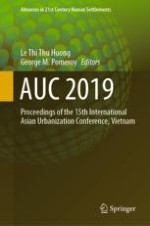2021 | OriginalPaper | Chapter
Slum Children-Youth Groups Demonstrate Zest, Collective Confidence and Tenacity to Improve Access to Education and Self-development Opportunities
Authors : Siddharth Agarwal, Shabnam Verma, Kanupriya Kothiwal, Neeraj Verma, Kailash Vishvakarma
Published in: AUC 2019
Publisher: Springer Singapore
Activate our intelligent search to find suitable subject content or patents.
Select sections of text to find matching patents with Artificial Intelligence. powered by
Select sections of text to find additional relevant content using AI-assisted search. powered by
